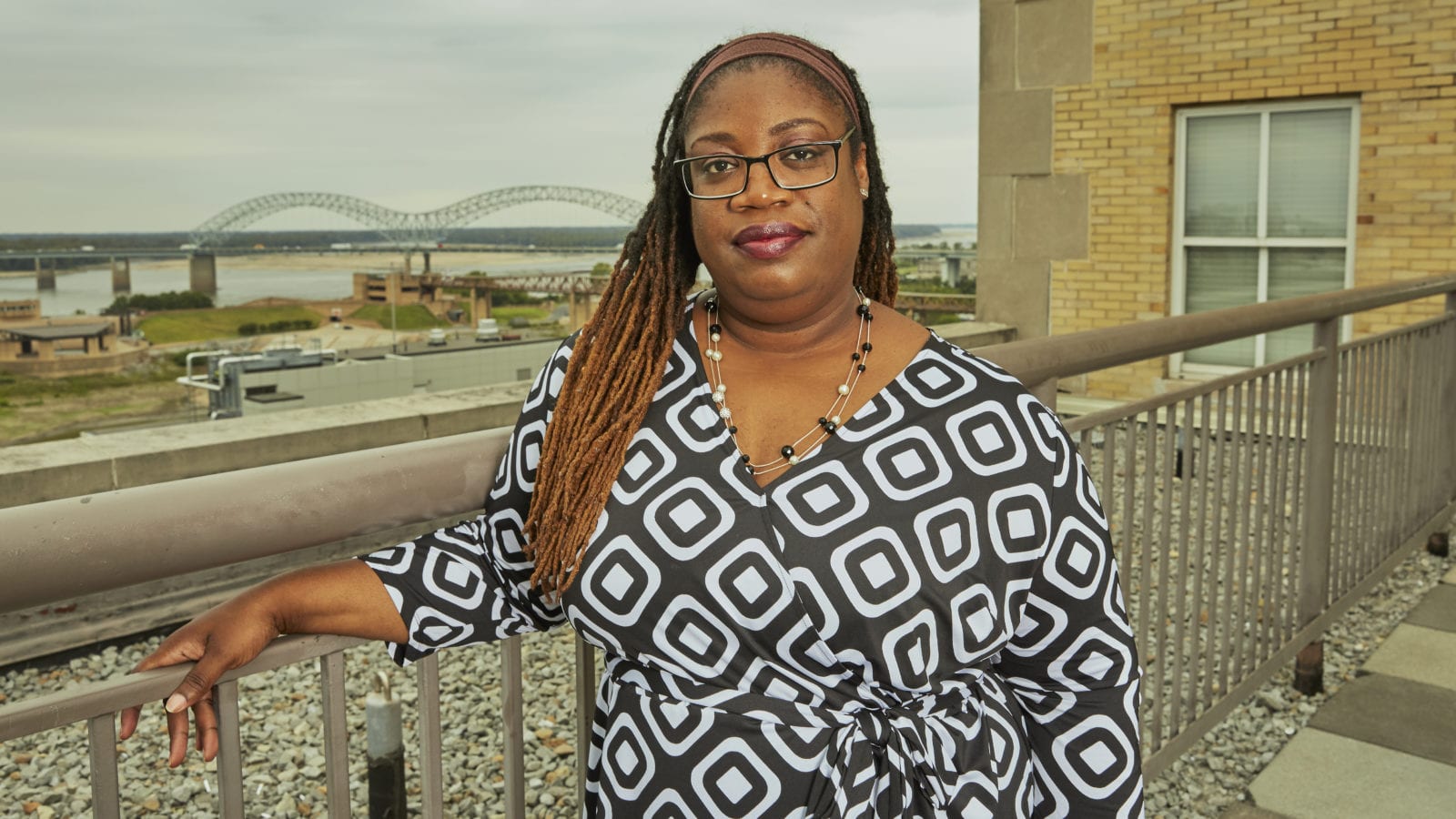Name: Amber Hamilton ’94
Home: Memphis, Tennessee
Work: Chief operating and strategy officer for the Memphis Music Initiative, a youth engagement organization
The disparity did not sit well with Amber Hamilton.
In Memphis, Tennessee—a city with a rich musical heritage, home to such legendary artists as Elvis Presley, Al Green, and Aretha Franklin—many kids had little exposure to music in school. At the same time, some 20 percent of the young people in poor and underserved neighborhoods were what social scientists characterize as disconnected: not in school, not working, and not involved in anything meaningful.
And so this year, Amber, a seasoned manager of nonprofits, took over as chief operating and strategy officer for the recently launched Memphis Music Initiative, a local group that is leveraging the power of music to take on both problems by bringing working musicians into classrooms, funding music education for students, and providing grants to organizations working on youth engagement and development.
“The studies have shown over and over again that music is a great way to keep kids focused and get them comfortable with the idea of practicing something,” notes Amber, who started with the Initiative as a consultant in 2016. “And the idea of practice as a discipline has an impact on their reading and math, and all those great outcomes that we are trying to get to.” As beneficial as music can be, however, kids in Memphis were facing barriers. “They can’t afford instruments, can’t pay for their own lessons. That was a real gap. So the Memphis Music Initiative was created to address that gap and make sure young people, no matter what part of the city they are from, have access to in-school and after-school music programs.”
Founded in 2014 with money from an anonymous donor, the Initiative now has 16 full-time staff and employs 40 music fellows—songwriters, hip-hop artists, studio musicians, symphony players, and others—who work 20 hours a week in the classrooms. The program is “enormously popular,” notes Amber. “It’s cool for young people to be working with real gigging musicians. We have students where the music class is really the main reason they come to school. They love it that much. So this program has been an opportunity to engage not only the young people who are part of the program, but also the teachers and the administrators, to make a case for arts education and for the importance of creative youth development.”
Amber’s journey from Williston to Memphis reflects her increasing professional focus on working for social change. Earning her B.A. in political science from Howard University, a master’s degree in executive leadership from Georgetown University, and a certification in executive coaching from Georgetown, she started her career as assistant director of player development for the National Football League, then worked with Fannie Mae in the office of community giving. After moving to Memphis, she consulted for and served as interim CEO of the Soulsville Foundation, which operates a museum, music school, and charter school on the former site of the Stax Records studio.
All of this, she says, prepared her for her current work. “My background in the sports business, especially starting out as a young woman in that business, really made me tough. You have to fight to be heard, you have to fight to be taken seriously, and you will be tested a lot. It helped me develop executive presence and develop my voice, all of these very important skills that I would need later. When I was at Fannie Mae, it helped give me that corporate background that helps me on the business end of what I do today. Every stop along the way taught me something important.”
Her time at Williston also taught her vital lessons, she adds. She and several other students started the first African American affinity group at the school, advocating for more diversity in faculty and protesting what they saw as racial profiling by certain Easthampton stores. “Williston helped me build my independent spirit and voice. I’ve never been a shy person, but Williston provided lots of opportunities for me to lead, and learn how to lead. I had to figure out, how do I make my persuasive argument? How do I make people who have not lived this understand what it feels like and why it’s problematic, and why I need them to join me as an ally in this fight? Developing all those things early on became the foundation of what would become my social justice point of view.”
It’s a point of view she is now putting to music.

